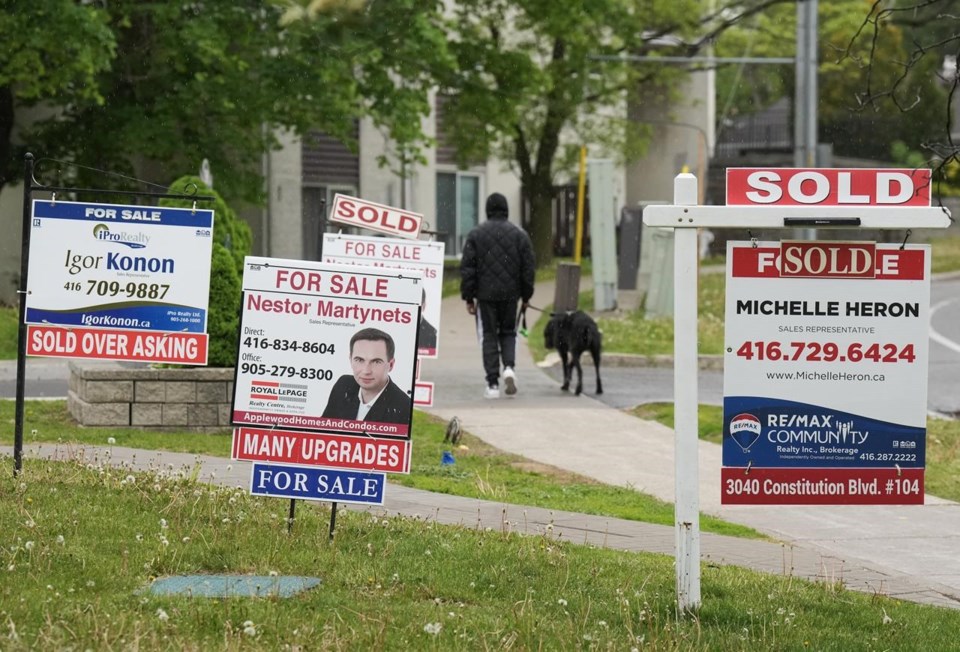The national housing market slowed last month with sales and prices tumbling between July and August as the Bank of Canada's latest interest rate hike rattled buyers.
The Canadian Real Estate Association (CREA) revealed Friday that seasonally adjusted sales totalled 38,345 in August, down 4.1 per cent from July. The actual number of sales amounted to 40,257, up 5.3 per cent from a year earlier.
The market's softening could be a welcome sign for buyers, who watched housing costs soar through much of the COVID-19 pandemic only to be handed a quick succession of interest rate hikes as prices began to fall.
The Bank of Canada dealt prospective buyers another blow in July, making August the first full month in the new interest rate environment.
However, CREA chair Larry Cerqua saw some stability returning to the market, despite sales being pulled lower in August by declines in Greater Vancouver and the Fraser Valley in B.C., Montreal, Ottawa, Hamilton and Burlington, Ont., as well as London and St. Thomas, Ont.
“With sales slowing and new listings returning to more normal levels, demand and supply are continuing to come into better balance” he said in a press release.
“This is giving buyers more time and more choice."
Cerqua's observations were based on new listings hitting 69,438, a 5.5 per cent rise from the prior August. The seasonally adjusted number fell for the fifth consecutive month, reaching 68,276, up less than one per cent from July.
The listing flow is much stronger than that seen earlier in the year and is now even tracking in line with pre-COVID norms, said Robert Kavcic, a senior economist with BMO Capital Markets.
"After a dearth of new listings earlier this year helped lift prices off the floor, supply is now coming to market at a rate in-line with historical norms again," he said in a note to investors.
"That, combined with sluggish sales, continues to soften the market balance in a meaningful way."
The seasonally adjusted average price of a home in August fell 2.3 per cent from July to $674,184, while the actual price was up 2.1 per cent from a year earlier to $650,140.
Though housing affordability remains a "significant problem," recent data for the second quarter shows an uptick in first-time purchases, said Sherry Cooper, chief economist with Dominion Lending Centres.
CREA noted that regional differences are also re-emerging.
Price growth has remained solid in Quebec and the East Coast, followed by British Columbia and the Prairies, it said.
"Ontario is now a mixed bag, still with some of the bigger increases but also some of the bigger declines."
Cooper sees the Bank of Canada backing off on rate hikes and supply gradually returning, helping housing activity pick up in the coming months.
"Year-over-year home prices will rise owing to base effects, as lower prices were posted in the fall and winter of last year, making the year-over-year comparisons more favourable," she said in a note to investors.
"We don't want to see a burst of activity because that could cause the central bank to rethink its rate pause."
This report by The Canadian Press was first published Sept. 15, 2023.
Tara Deschamps, The Canadian Press




